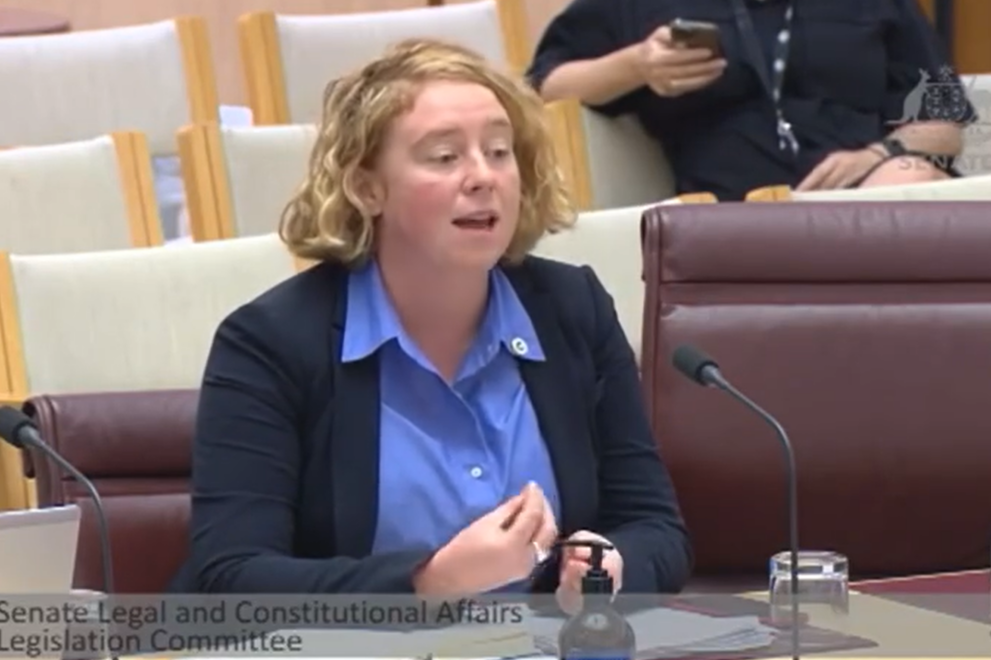Your cart is empty.


Your cart is empty.
This year, NAIDOC Week celebrates a big milestone — 50 years of honouring Aboriginal and Torres Strait Islander people, culture, and history.
NAIDOC began as a movement for justice and recognition, led by Aboriginal communities who imagined a fairer future. It has grown into a powerful national celebration of pride, showing the strength, leadership, and resilience of First Nations people across the country.
📍 Check out the events happening across Tarntanya / Adelaide and visit naidoc.org.au to learn more.
NAIDOC March and Family Festival (Free)
📅 Friday 11 July 2025
🕚 11am – 4pm
📍 Tarntanyangga (Victoria Square)
Church Service and Light Dinner (Free)
📅 Sunday 6 July 2025
🕕 6pm – 8pm
📍 Pilgrim Uniting Church, 12 Flinders Street, Adelaide
NAIDOC SA Awards
📅 Monday 7 July 2025
🕛 12pm – 2pm
📍 Adelaide Town Hall, 128 King William Street, Adelaide
NAIDOC SA Gala Ball
📅 Saturday 12 July 2025
🕡 6:30pm – 11:30pm
📍 Adelaide Convention Centre, North Terrace, Adelaide
👉 For the full event schedule and updates, visit naidocsa.com.au
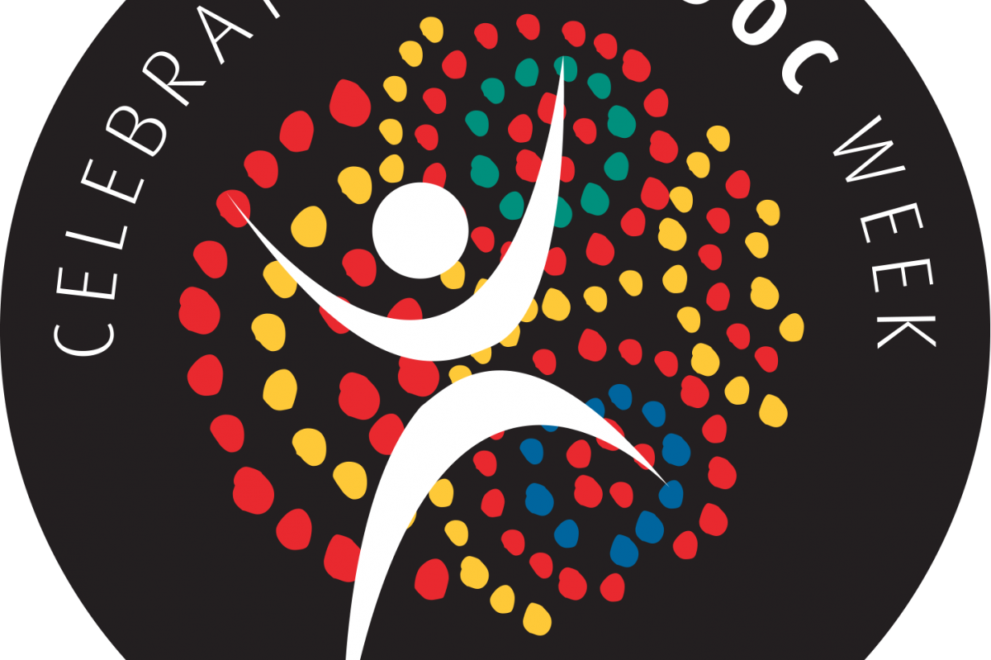

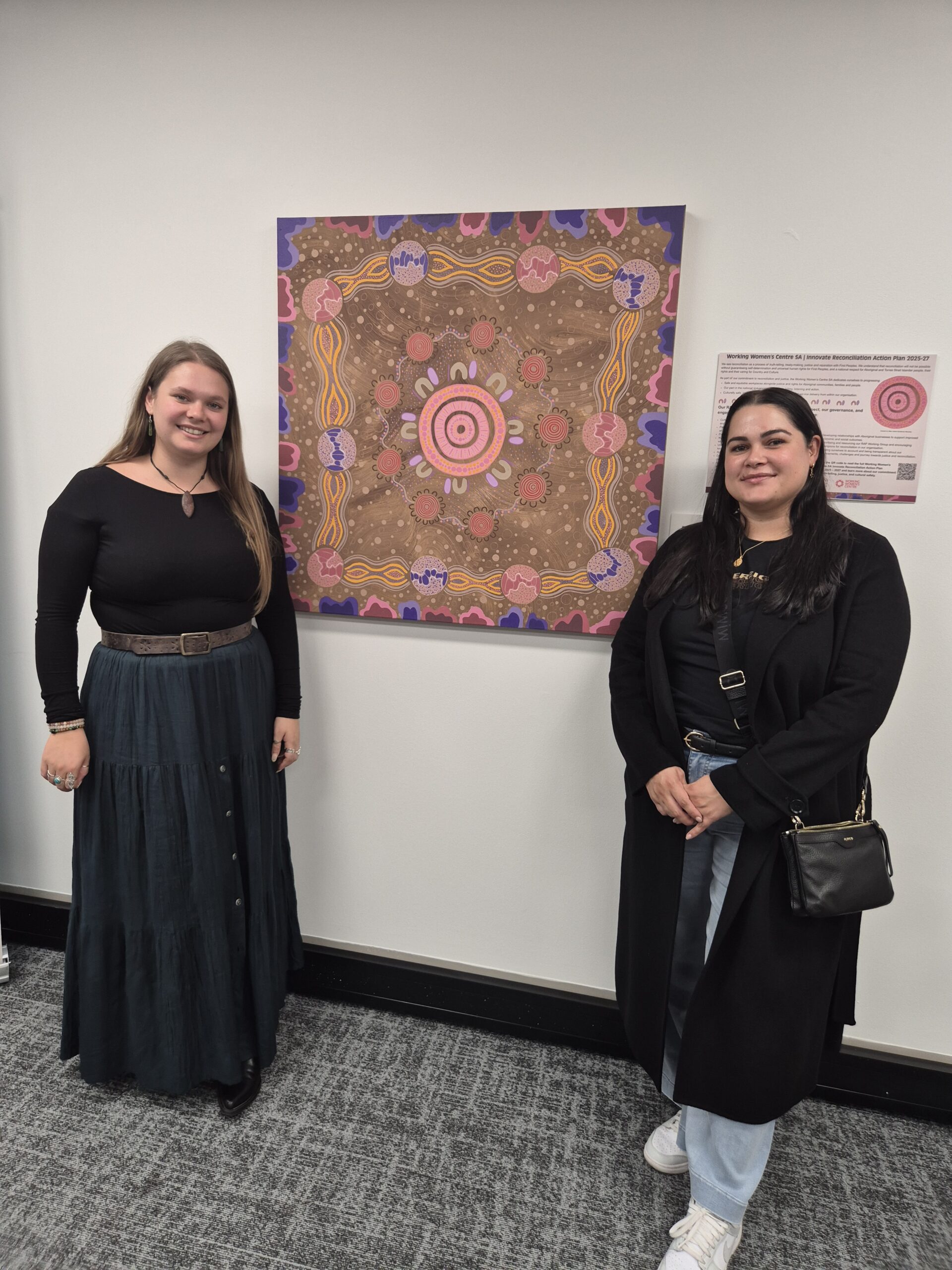
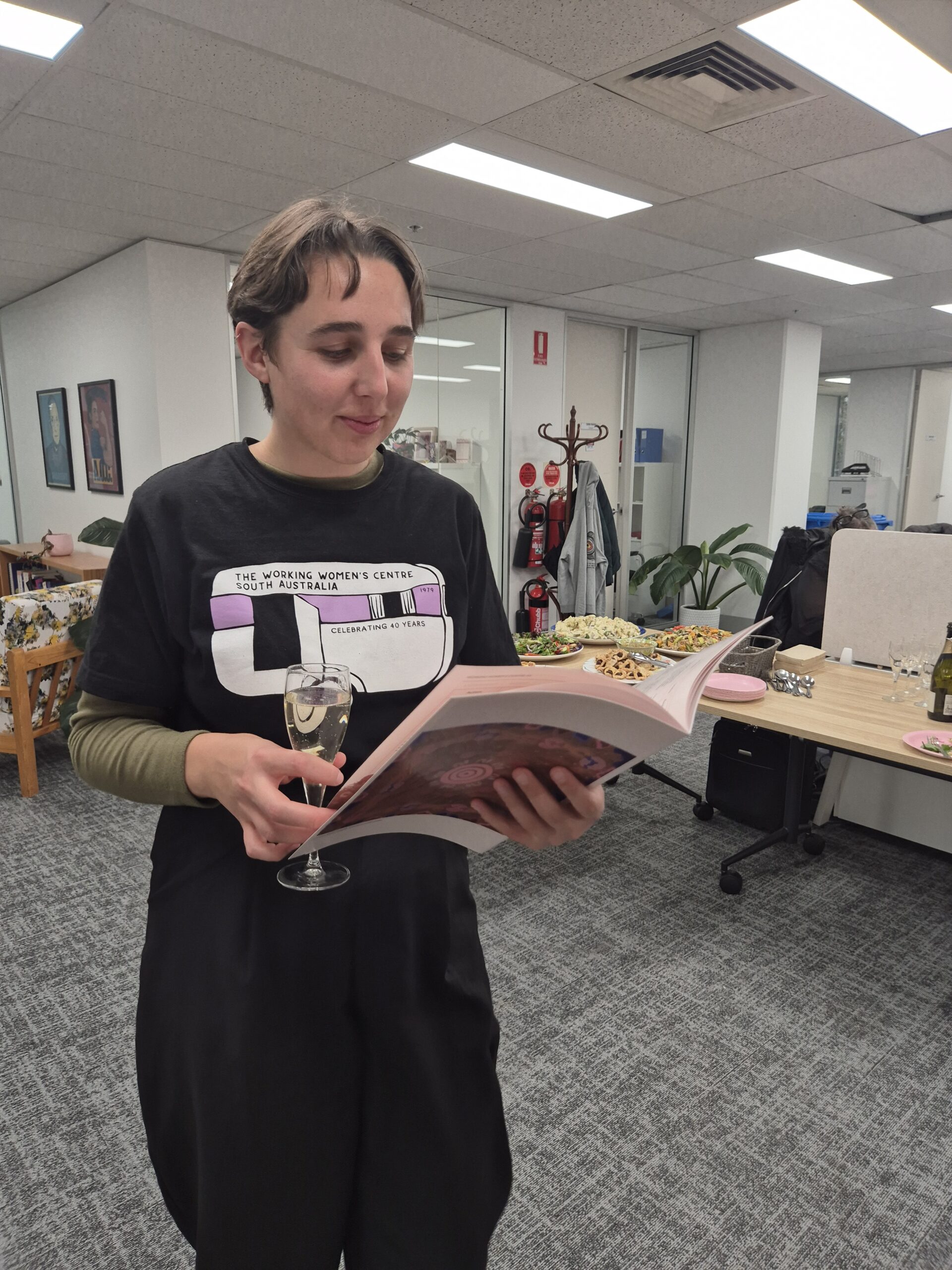
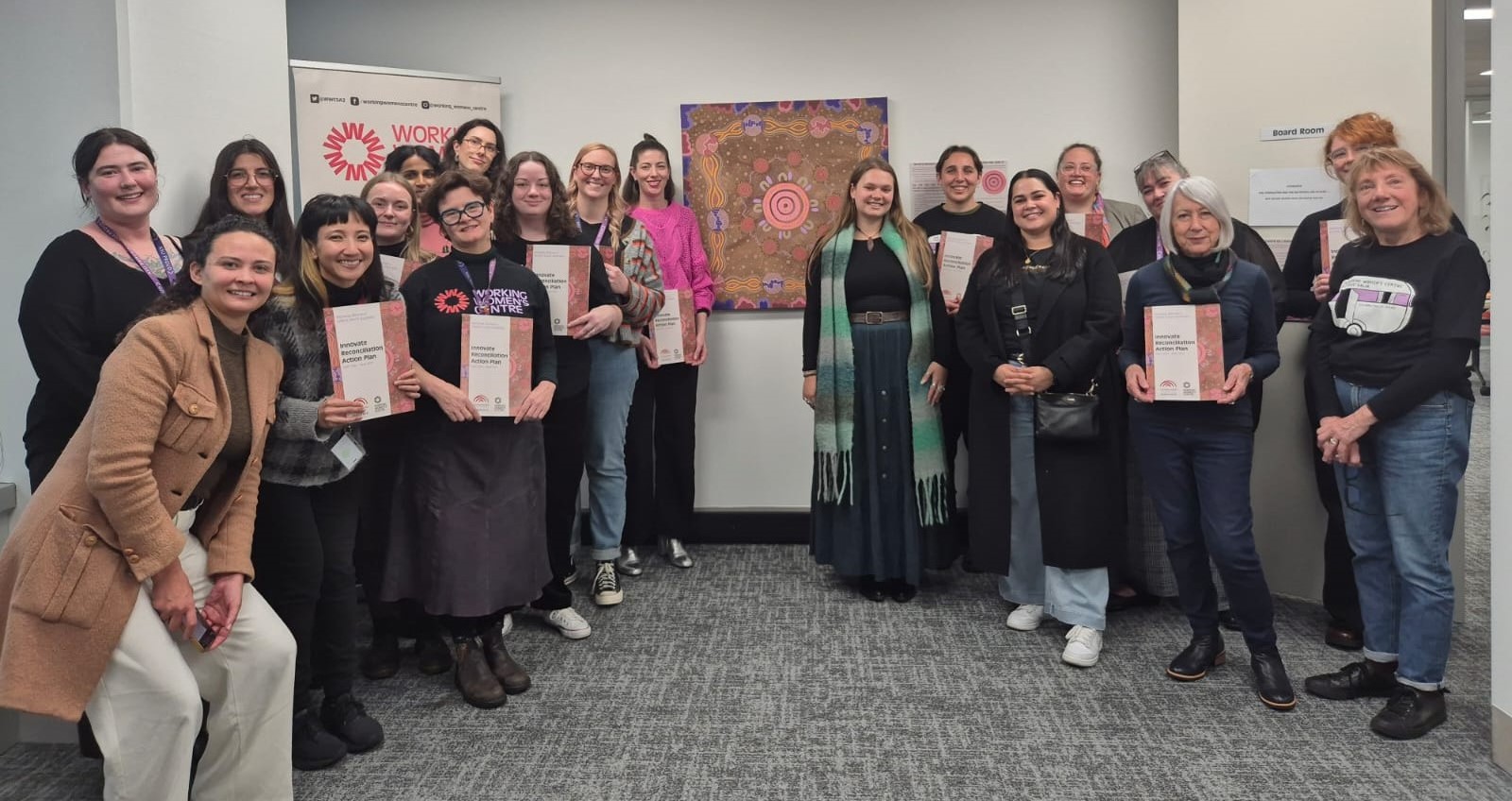
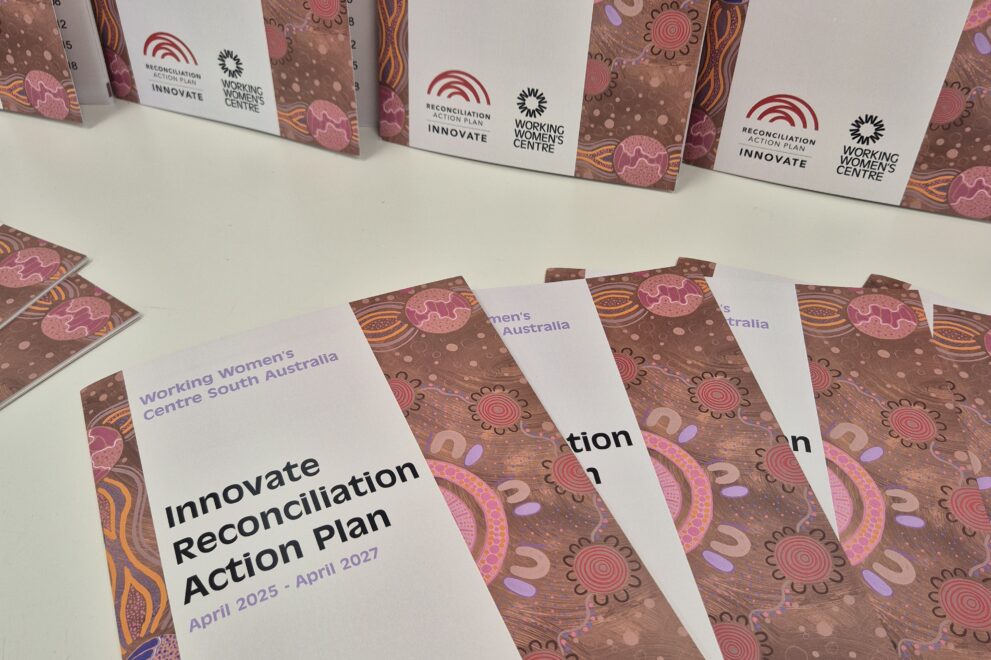
As part of this initiative, the AHRC has also developed a suite of resources to support workers, employers, and advocates in taking action.
👉 Explore the resources: https://lnkd.in/gHhBZxK6
👉 Read the full Speaking from Experience report here: https://loom.ly/SXRllfs
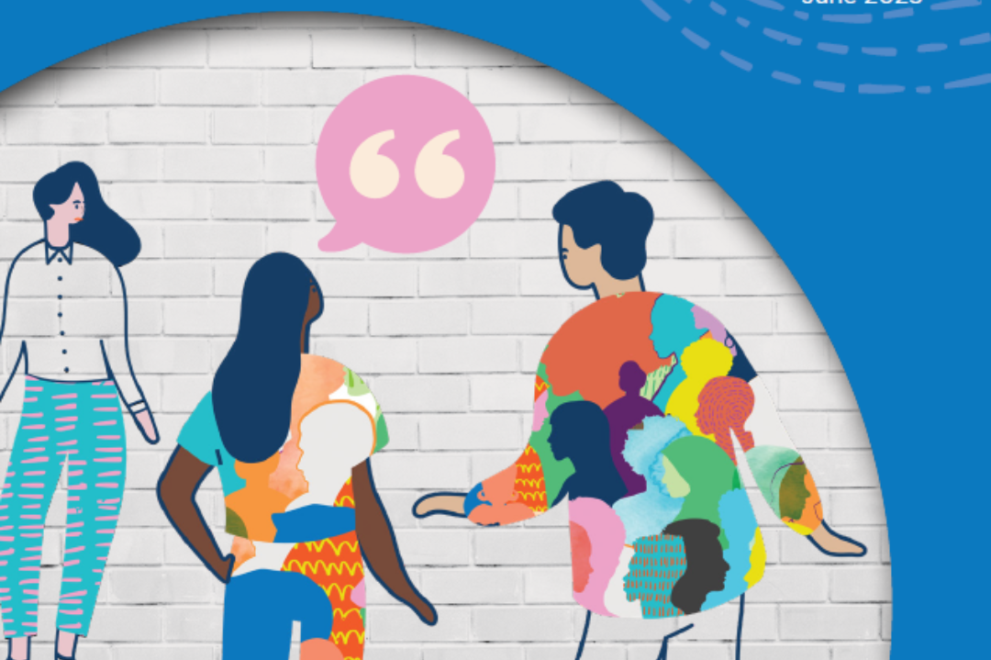
The Working Women’s Centre SA hit the road for four days, travelling to Port Augusta, Whyalla, and Port Pirie as part of our commitment to support vulnerable workers residing in regional South Australia about their rights at work.
We also provided free legal information to the community and connected with local organisations to strengthen referral pathways, build relationships, and better understand the needs of each region.
Our team engaged with hundreds of students, job seekers, teachers, and community members, sharing vital information about workplace rights, safe work environments, and how we support workers across regional South Australia.
We stopped in Port Augusta, where we were proud to be an exhibitor at the 2025 Career Roadshow hosted by UniHub Spencer Gulf. Education & Training Officer Maddie Diamond and Lawyer Dharani Rana were on hand to chat with students, career changers, and curious minds about their rights at work and the services we offer.
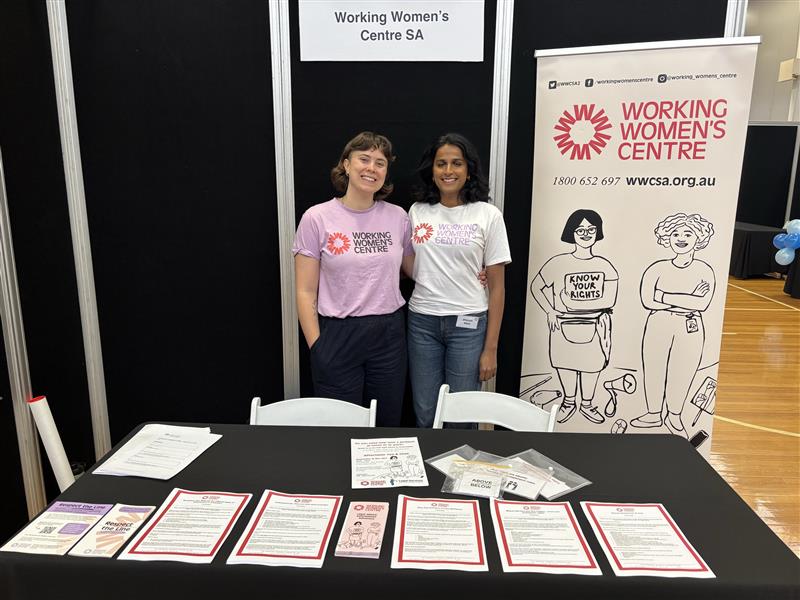
Our popular ‘Above the Line’ activity — helping participants identify workplace behaviours that are examples of sexual harassment — sparked meaningful conversations with young people and others who visited our stall.
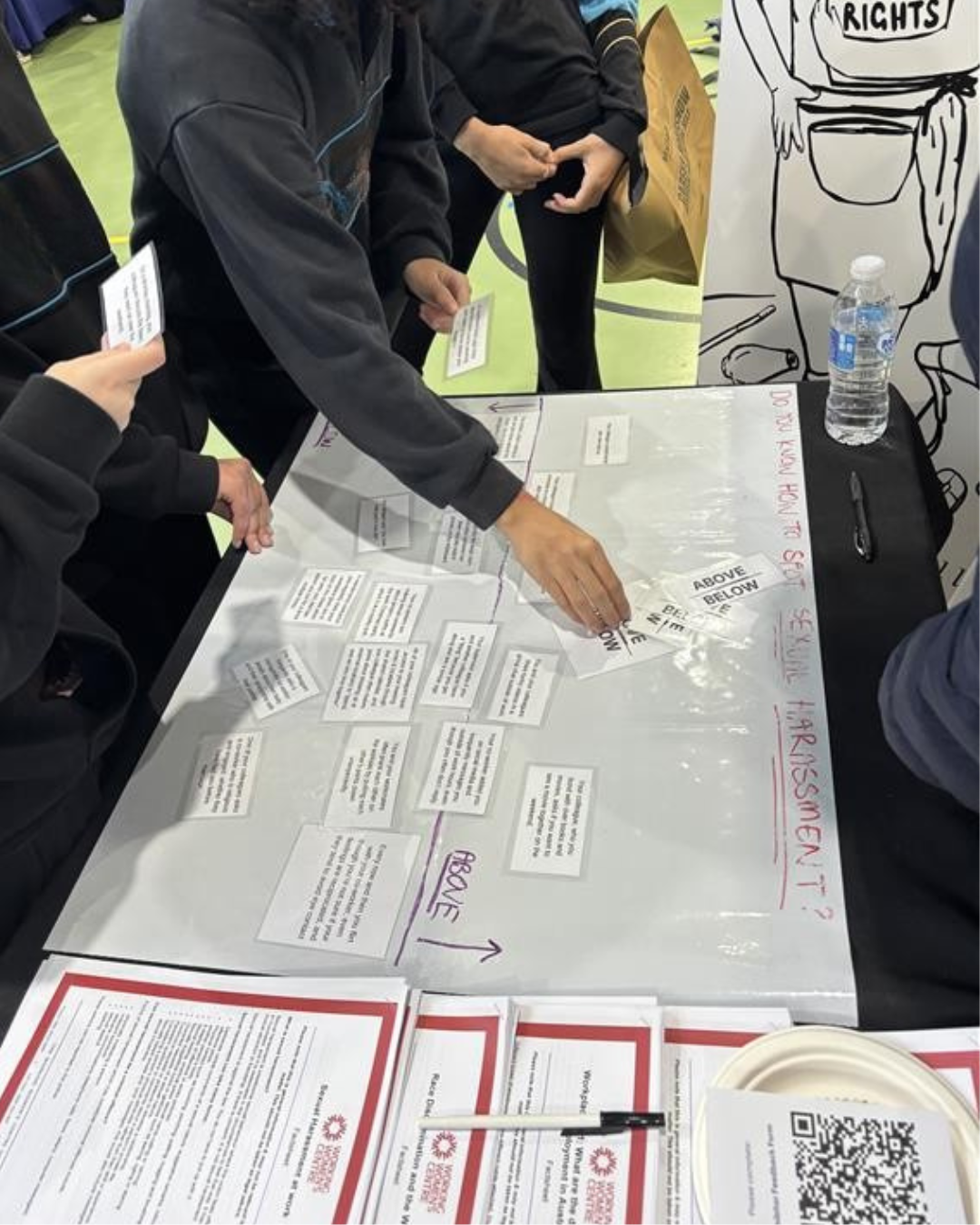
We teamed up with the Legal Services Commission for a community afternoon tea at TAFE SA Port Augusta. Locals were invited to drop in, grab a cuppa, and speak to our legal team about workplace rights, family law, domestic and family violence, child protection, and more.
We run these sessions to reduce barriers and provide clear and useful information through warm conversations.
The team also visited Whyalla, continuing the conversation at the local Career Roadshow, where we partnered with the Legal Services Commission. It was another fantastic day of engagement, where we spoke with students, workers, and community members about common workplace issues and how to seek help when things go wrong.
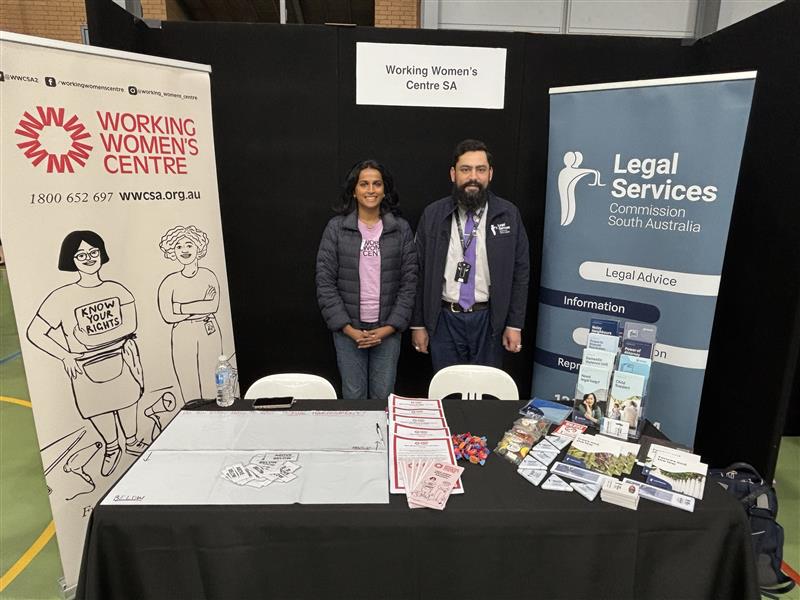
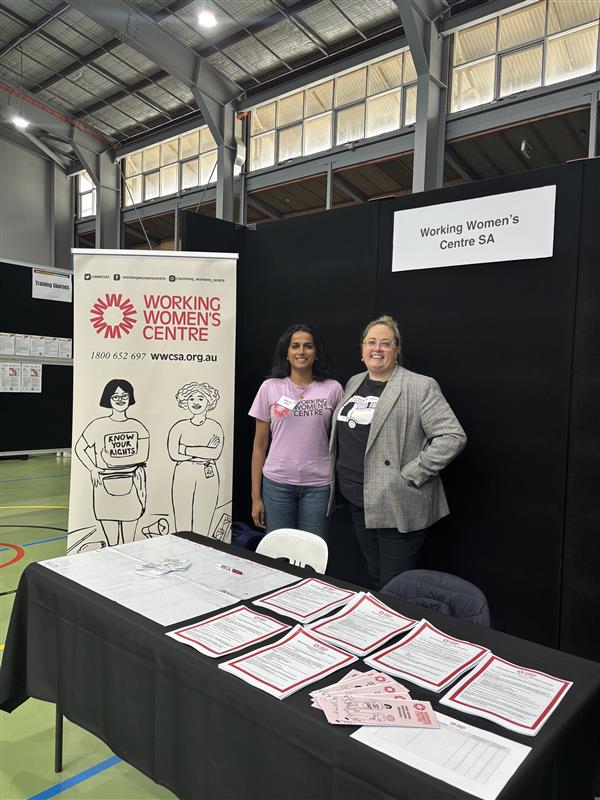
Our regional visit included meetings with the Port Augusta Council, Whyalla Council, The Haven Whyalla, Centacare, the Aboriginal Legal Rights Movement, the Australian Migrant Resource Centre, and the Whyalla Community Hub. In Port Pirie, our Director, Nikki Candy, and Principal Lawyer, Emma Johnson, connected with local services to share information about our programs and services.
On our way back to Adelaide, we wrapped up our trip with an interview on Umeewarra Radio, sharing how we support workers through free legal services and assist both workers and employers to create safer workplaces through our workplace training sessions.
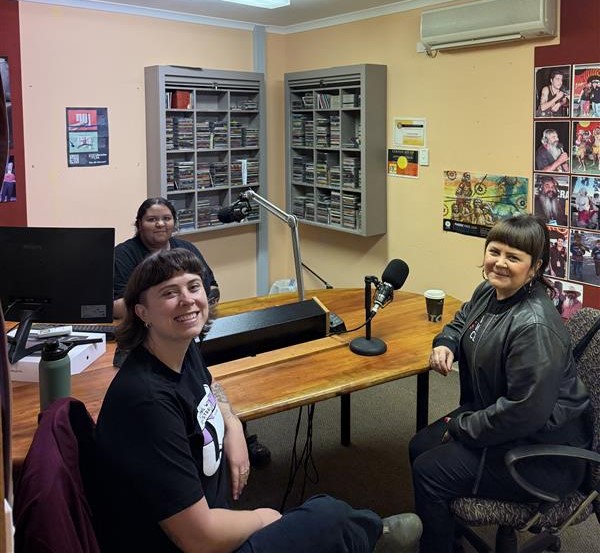
Why Regional Outreach Matters
Regional South Australians face unique challenges when it comes to accessing legal help and knowing their workplace rights. That’s why connecting directly with these communities is a key part of our work at the Working Women’s Centre SA.
If you or someone you know needs legal advice about work, we provide confidential, free legal support to eligible workers. Call (08) 8410 6499.
We also deliver Community Legal Education (CLE) —free presentations designed to assist students, workers, and community members better understand their workplace rights. To organise a CLE session or a speaker for your school, community group, or organisation, contact us at: reception@wwc.org.au
For employers we offer workplace education and training for small, medium, and large organisations across all industries, helping build respectful, safer workplaces. Get in touch with our Training and Education team to discuss your needs at training@wwc.org.au.
Want to stay updated on WWCSA news and where we’re heading next?
Sign up for our newsletter.
👋 We’re already looking forward to the next regional trip!
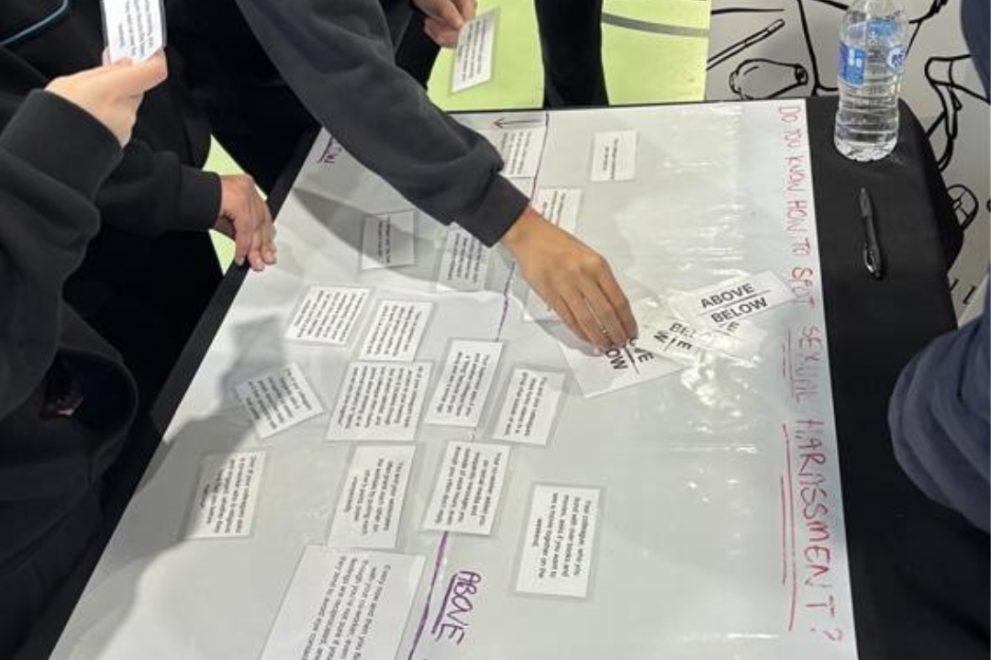
From 27 May to 3 June, Australians from all walks of life will mark National Reconciliation Week (NRW) — a time to learn about our shared history, reflect on our journey, and take meaningful action toward a fairer, more equitable future for Aboriginal and Torres Strait Islander peoples.
This year’s theme, “Bridging Now to Next,” invites us to reflect on where we’ve been, where we are, and where we need to go. It acknowledges the lessons of the past and challenges us to apply them in shaping a more respectful and united nation. It’s a call to every Australian to keep moving forward together.
Why these dates matter
NRW is always held from 27 May to 3 June to commemorate two key milestones in the reconciliation journey:
Together, these dates remind us of the power of collective action and the importance of truth, justice, and respect in shaping a better future.
About this year’s theme

The 2025 theme — “Bridging Now to Next” — is brought to life by the artwork of proud Kalkadoon woman and digital artist Bree Buttenshaw. Her piece draws on the strength and resilience of native plants like Lemon Myrtle, Banksia and Kangaroo Paw — known for thriving after adversity — to symbolise regeneration, connection, and hope.
This theme is not just symbolic. It urges us to act: to honour the voices that came before us, to stand in solidarity with Aboriginal and Torres Strait Islander communities today, and to build a stronger, more just tomorrow.
How to get involved
National Reconciliation Week is for everyone. Whether you’re a school, workplace, or individual, there are many ways to participate:
Our commitment at the Working Women’s Centre SA
At the Working Women’s Centre SA, reconciliation is an essential part of our commitment to equity and justice. We honour the notion that Aboriginal matters require Aboriginal voices at the table and are pleased to inform that we are currently working in partnership with local Ngarrindjeri woman, Nicole Gollan of Nik&Co. Consultancy in the co-design of our inaugural Reconciliation Action Plan (RAP) — a framework that will guide our actions to build stronger relationships with Aboriginal and Torres Strait Islander peoples, ensure cultural safety in our workplace and services, and contribute meaningfully to reconciliation in South Australia.
We look forward to sharing our RAP with you soon, and continuing this important journey — together.
For more information about Reconciliation Week, visit reconciliation.org.au and stay tuned for updates on our Reconciliation Action Plan.
#NRW2025 #BridgingNowtoNext #ReconciliationWeek
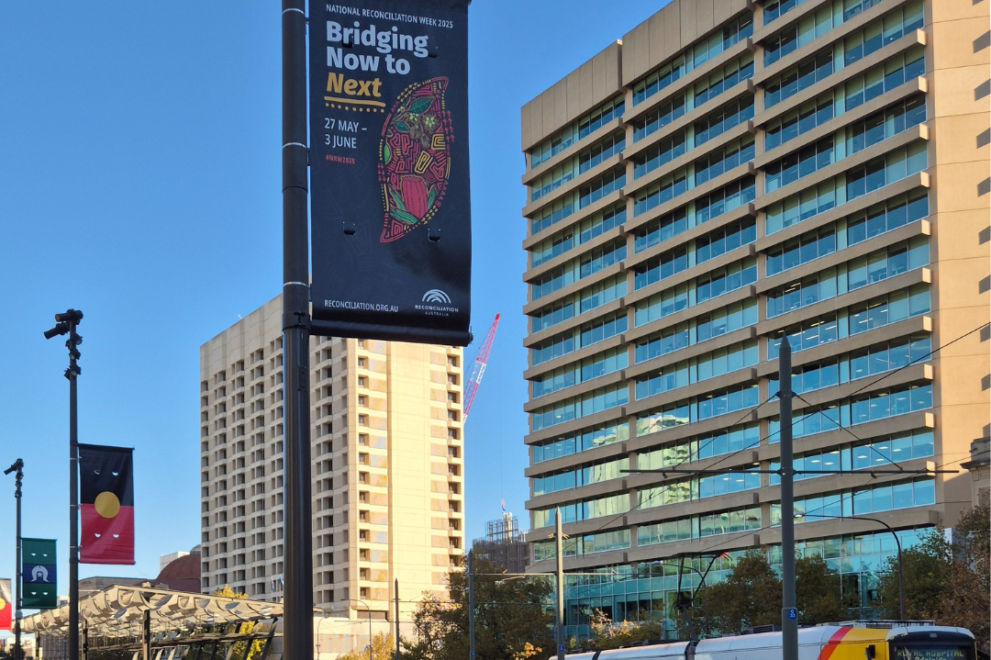
Abelita and Etelvina were in Australia for a two-week leadership and learning journey across Melbourne and Adelaide, as part of the Anna Stewart Memorial Project (ASMP) — a program that brings union women together to grow leadership, build solidarity, and strengthen the movement.
Their visit was made possible through our ongoing partnership with Union Aid Abroad – APHEDA, and it’s a reflection of the strong and deep-rooted bonds between Australian unions and our Timorese neighbours.
As part of their journey, Abelita and Etelvina took part in an intensive week of ASMP training with SA Unions. They explored the role of women in the union movement, connected with Australian labour history, and joined workshops on leadership and advocacy. They also spent time doing hands-on placements with local unions to see how worker advocacy plays out in real life.
When they visited us at WWCSA, we spent a full day learning from each other. Some of the highlights included:

Our connection with the Working Women’s Centre Timor-Leste goes way back. It all started in 2008 when Elisabeth Lino De Araujo — now WWCTL’s Country Manager — joined the ASMP and did her placement right here at WWCSA. That experience helped plant the seed for WWCTL, which today supports women workers across Timor-Leste, especially domestic workers who’ve long been excluded from formal labour protections.
It was an honour to spend time with Abelita and Etelvina. Their visit wasn’t just about learning — it was a beautiful expression of international solidarity. These connections strengthen the global movement of women pushing for fair, safe, and respectful workplaces.
To Mana Abelita and Mana Etelvina — Obrigada. Thank you for your courage, your stories, and your vision. This is just one chapter in a much bigger story of solidarity, sisterhood, and the ongoing fight for workers’ rights around the world.
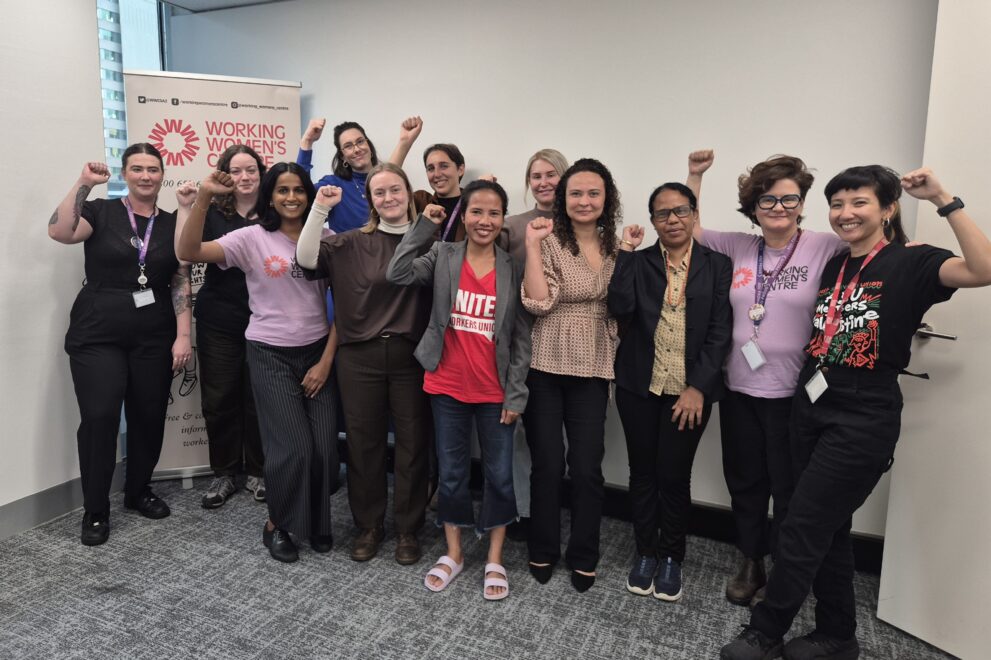
For many workers, particularly women, workplace sexual harassment is a deeply harmful psychosocial hazard. Its impacts are long-lasting, affecting mental health, job satisfaction, and overall wellbeing. But the impact goes beyond the harassment itself.
The widespread use of Non-Disclosure Agreements (NDAs) in workplace sexual harassment cases continues to undermine safety by silencing victim-survivors and protecting perpetrators. Often presented as a standard condition for resolving such claims, these legal contracts can ultimately cause more harm than good.
A Non-Disclosure Agreement (NDA) is a legal contract that requires someone to keep certain information confidential. In workplace sexual harassment cases, NDAs are often used to prevent victim-survivors from speaking about what happened to them—sometimes indefinitely.
While NDAs are presented as standard legal tools to protect privacy and finalise settlements, in practice, they are often misused, shielding employers and perpetrators while isolating victim-survivors. Many workers feel they have no real choice but to sign an NDA to resolve their complaint, secure a settlement, and protect their career.
One in three workers in Australia has experienced sexual harassment in the workplace in the last five years—41% of women, 26% of men, and 67% of non-binary people.[1] This is not a marginal issue. It is Australia’s most widespread workplace safety concern.
Sexual harassment is driven by outdated gender stereotypes and entrenched power imbalances. It happens across all sectors, to people of all ages and backgrounds, and it’s overwhelmingly perpetrated by men (77%). [2]
Workplace sexual harassment causes deep psychological harm. Victim-survivors often experience:[3]
When NDAs prevent people from speaking about their experiences, these harms are exacerbated—isolating workers, inhibiting accountability, and making it harder to heal.
At the Working Women’s Centre SA, we see first-hand the long-term impacts of workplace sexual harassment and NDAs on the careers and lives of workers.
Workplaces have a Positive Duty under the law to proactively prevent sexual harassment—not just respond after harm is done. The routine use of NDAs undermines efforts to create a safe, transparent workplaces.
We are calling on the South Australian Government to restrict and regulate the use of NDAs in workplace sexual harassment matters. NDAs should never be the default.
They should only be used when requested by the victim-survivor, without coercion, and with access to independent legal advice.
NDA reform would:
The Working Women’s Centre SA is campaigning to end the misuse of NDAs and ensure that workers can access justice, healing and the freedom to tell their stories.
[1] [2][3]Source: Time for respect: Fifth national survey on sexual harassment in Australian workplaces, Australian Human Rights Commission, 2022.

The gender pay gap remains an obstacle to economic equality in South Australia. Women continue to earn less than men, affecting their financial security, career opportunities, and long-term well-being. Closing the gender pay gap will improve the lives of women across South Australia.
On average, for every dollar men earn in South Australia, women earn just over 90 cents. This means women earn about $190 less per week than men, adding up to $9,412 less per year. The report shows that South Australia’s gender pay gap is currently 9.8%. While SA has the third smallest pay gap in Australia, it has grown by 1.8 percentage points since the Taskforce started in 2022.
The Taskforce is made of representatives from government, business, and gender equality experts. Sarah Andrews MP, Chair of the Taskforce, said their work focused on understanding why the gender pay gap exists and identifying solutions to close it.
Over the past two years, we have done a lot of research and put together a report that explains the complex reasons behind South Australia’s gender pay gap, Andrews said.
The Taskforce focused on:
The report found three main reasons why women in South Australia earn less than men:
Abbey Kendall, a Taskforce member and CEO of the Working Women’s Centre Australia, explained the impact:
The gender pay gap negatively affects women’s lives and the economy. Women in South Australia earn less, save less for retirement, and are less likely to be in leadership roles. Over time, this leads to more financial stress, housing instability, and poverty for women as they get older.— Abbey Kendall, CEO of the Working Women’s Centre Australia
The report recommends three key areas for action:
1. Supporting Employers in South Australia
2.Improving Data and Research on Gender Inequality
3.Strengthening the Role of the Public Sector
Nikki Candy, Director of the Working Women’s Centre SA, emphasised the importance of the report:
This report confirms what we see every day—women in South Australia continue to face gender pay discrimination. To close the gap, we need action at every level.
With almost two-thirds of the workforce in small and medium-sized businesses, there is a real opportunity for change. At the Working Women’s Centre, we’ll continue to support employers by providing training and practical tools to address their gender pay gaps.
We will continue working towards a future where women receive equal pay and equal opportunities. — Nikki Candy, Director of the Working Women’s Centre SA
Research suggests that closing the gender pay gap could add $128 billion to the Australian economy. At a time when South Australia is facing critical skills shortages, failing to address this gap means missing a significant opportunity to drive economic growth.
The gender pay gap is not just a matter of fairness—it impacts the entire community and has wide-ranging economic and social consequences. Closing the gap would improve women’s economic security and independence while also reducing financial abuse and long-term poverty among women.
Our state has always been a world leader in gender equality and I want us to continue to lead the way in our shared efforts to close the gender pay gap, said Katrine Hildyard MP, Minister for Women and the Prevention of Domestic, Family and Sexual Violence.
For more information on the Gender Pay Gap Taskforce final report, visit the Office for Women South Australia or contact the Working Women’s Centre for workplace legal advice and training and resources on gender equality in the workplace.
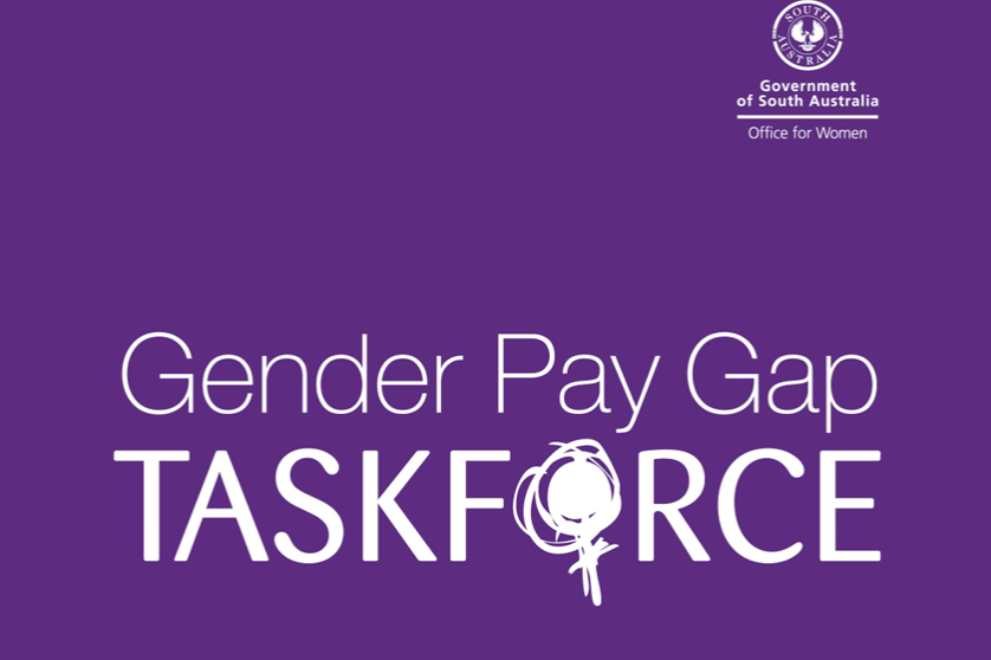
Highlighting a year of growth and ongoing support for women facing workplace disadvantage, the 2023/24 Annual Report has been published by the Working Women’s Centre South Australia (WWC SA).
The report outlines the Centre’s expanded services, including legal support, advocacy, and educational programs aimed at improving the economic welfare and workplace rights of vulnerable women.
WWC SA’s legal team had a busy year, representing over 1,400 individual clients and providing more than 2,600 instances of legal advice. The team focused on issues such as sexual harassment, discrimination, wage theft, and unfair dismissals, successfully recovering nearly $1 million in compensation for clients.
We have provided advice to 570 workers regarding sexual harassment and discrimination and have opened 136 cases specifically related to these issues. — Emma Johnson, Principal Lawyer
This year we recovered a total of $986,978.40 for our clients. This amount includes unpaid wages, general damages for sexual harassment and discrimination complaints, and compensation for clients who were unfairly dismissed or terminated from their workplace.
Education and Training Initiatives
The Centre’s education and training programs reached over 500 participants this year, with a focus on preventing sexual harassment and addressing domestic and family violence in the workplace. A recent review of the training programs provided valuable insights, ensuring that the Centre’s educational offerings remain relevant and impactful.
Campaigning for Workers’ Rights and Legal Protections
WWC SA continues to advocate for legislative reforms that protect workers’ rights. This year, the Centre actively supported the successful passage of the Australian Human Rights Commission Amendment (Costs Protection) Bill, which provides greater protections for workers pursuing sexual harassment and discrimination claims. The Bill passed and became law in September 2024.
In addition to this legislative success, WWC SA has also celebrated a number of other key milestones throughout the year. These include securing additional funding from the Department of Employment and Workplace Relations, enabling the Centre to expand its advocacy, training, and education teams.
Another major achievement was the establishment of a national peak body, WWC Australia, based in Adelaide, which broadens support for working women across the country.

We are pleased to announce the commencement of our Law Student Volunteer Program for Semester 1, 2024, with the successful recruitment of two new volunteers, Lejla Cacvic and Suzy Jeong.
Both Lejla and Suzy make a wonderful addition to the centre, and we thank them for generously offering to volunteer their time.
Our volunteer program is overseen by our Client Services Coordinator, Sarah Devenport, and Lawyer, Angela Scarfo, who are both constant points of contact for our students, providing training and supervision in an ongoing capacity to enhance and foster growth in skills and confidence.
The program is designed to train law student volunteers to undertake client intake and assist the legal team with appropriate legal tasks.
Our program ensures that both Suzy and Lejla will experience a busy legal practice and be exposed to:
The law student volunteer program runs for the duration of the university semester and we expect the new intake of volunteers to commence shortly before semester two 2024.
This program is funded by the South Australian Attorney General’s Department.
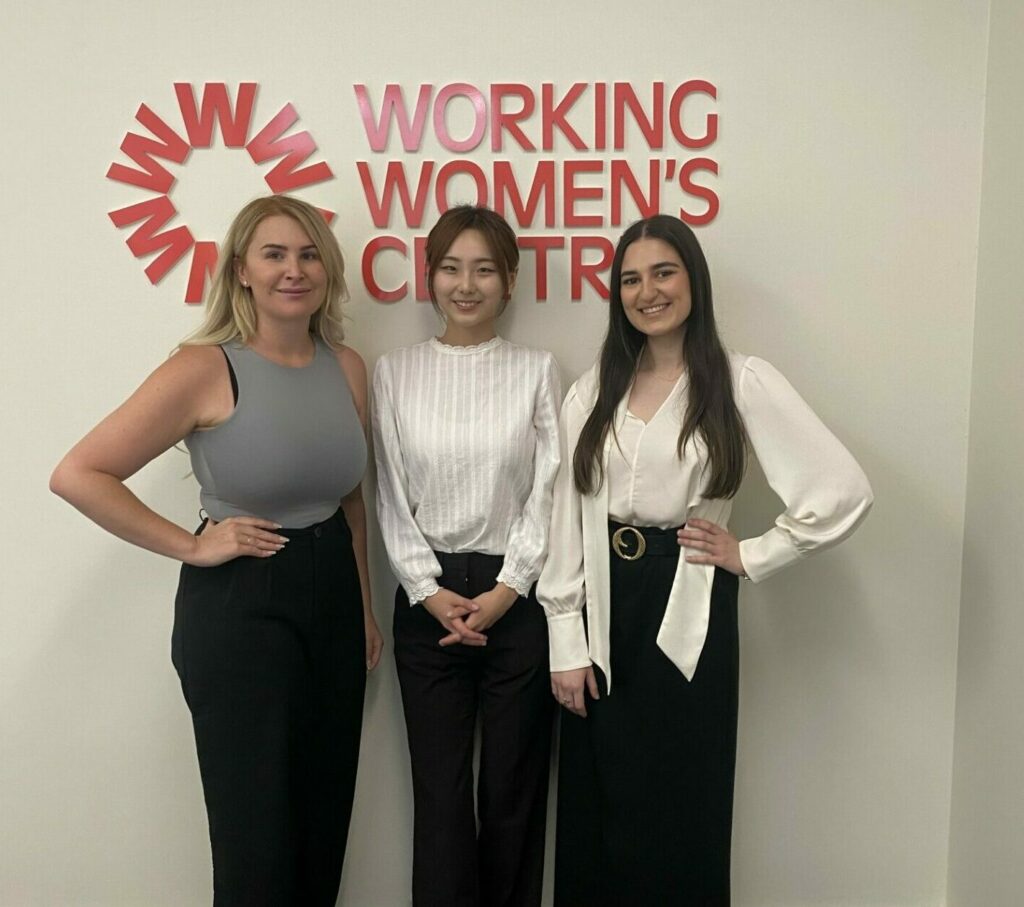
(From left to right) Client Services Coordinator Sarah Devenport; new volunteers Suzy Jeong and Lejla Cacvic.

On 1 December 2023 the Working Women’s Centre SA hosted an event at Tadouni College in Port Adelaide on domestic servitude with keynote speakers Associate Professor Natalie Harkin and Elisabeth Lino de Araujo.
The event was attended by Kaurna, Ngarrindjeri, and Narungga Elders and activists, government officials, representatives of Aboriginal health, academics, union officials, APHEDA members, the Hon. Mira El Dannawi MLC, the Hon Steph Key, the Hon. Tammy Franks MCL and the Commissioner for Equal Opportunity, Jodeen Carney.
We received apologies from the Hon. Kyam Maher, Attorney General, the first Aboriginal Attorney-General in South Australia, as well as Minister for Aboriginal Affairs and Minister for Industrial Relations and the Public Sector. We also received apologies from the Hon. Katrine Hildyard MP, Minister for Women and the Hon. Natalie Cook MP, Minister for Human Services.
Associate Professor Natalie Harkin and Elisabeth Lino de Araujo shared their expertise, research and poetry on domestic servitude and advocacy of marginalised women. This event was an excellent demonstration of solidarity between Aboriginal and Timor Leste women as it presented the similarities between historical domestic servitude within our State, which makes up an under spoken element of Australia’s history, and domestic servitude that occurring in other parts of the world today, such as in Timor-Leste.
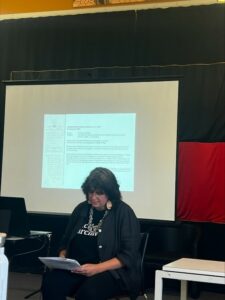
Associate Professor Natalie Harkin
Elisabeth Lino de Araujo is the founder of the Working Women’s Centre Timor-Leste (WWCTL) in Dili, Timor-Leste. From 2007 Elisabeth has worked as the Country Manager of Union Aid Abroad – APHEDA Timor Leste. Elizabeth presented on the incredible work that the WWCTL does, with a focus on advocacy for domestic and vulnerable female workers both in reaction to exploitation but in prevention. The Labour Code of Timor Leste was ratified by the Timorese Government in 2010, and the WWCTL has an outreach training workshop where they educate women on their rights at work in accordance with this legislation. We also heard Elisabeth present on another example of the fantastic advocacy of the WWCTL, on the proposed Special Law for Domestic Workers Bill in Timor Leste, which was drafted in 2017, and is awaiting promulgation. It was inspiring to hear about the WWCTL’s steadfast contribution to the formation of this Bill.
Associate Professor Natalie Harkin is a Narungga poet and Research Fellow at Flinders University living on Kaurna Yerta, South Australia. She engages archival-poetic methods to document community Memory Stories and is a member of SA’s inaugural State Records/State Library Aboriginal Reference Group. Her research centres on Aboriginal women’s domestic service and labour histories, and Indigenous Living-Legacy / Memory Story archiving innovations for our time.
Associate Professor Harkin presented on her research on historical domestic servitude of Aboriginal women and resulting stolen wages, of which the government in South Australia is yet to address. Further, she discussed the barriers in place for Aboriginal people to access their records through the State Archive today. An important underpinning theme of her work is the importance of the decolonisation of our state archives.
Leadlight artist and Narungga woman Sharene Vandenbroak kindly allowed the Working Women’s Centre SA to display her stain glass artwork at this event. Her artwork entitled ‘See Her Shining in the Sun’ was featured in the larger exhibition ‘APRON-SORROW / SOVEREIGN -TEA’ in 2021. Sharene’s set of gorgeous handmade stain glass windows depicting her strong female family members performing domestic labour received much praise and enhanced the story telling atmosphere of this event.
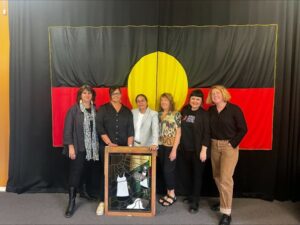
(Left to right) Associate Professor Natalie Harkin, Sharene Vandenbroak, Elisabeth Lino de Araujo, Anne-Marie Hayes, Nikki Candy, Abbey Kendall
Stolen Wages Work
The Working Women’s Centre SA organised this event as a result of meeting with multiple Aboriginal women and hearing their stories of work from the late 1950’s to late 1960’s. In acknowledgement of South Australia’s under recognised history of exploitation of Aboriginal workers, the WWC has been assisting several Aboriginal women to gain access to their records held in archives by the state government.
The racially motivated policies that existed in South Australia up until the 1970’s facilitated control and exploitation of Aboriginal workers. Resultingly, it was common for Aboriginal workers to not be paid, or to be paid small, intermittent amounts of money for the work they performed. The types of work that were common for Aboriginal workers to perform historically were domestic and pastoral work. The WWC is funded to provide legal advice to women and vulnerable workers, and in line with our funding, domestic servitude is feminised work. In a recent submission from the WWC to the state government on the proposal for South Australia to form a Human Rights Act, the WWC submitted to the inquiry that Aboriginal people should have the right to have timely access to records that relate to them. A copy of the WWC’s submission can be found here.
The WWC has been working with Associate Professor Natalie Harkin in advocating for archive accessibility and assisting Aboriginal women to request their own government records relating to their historical employment. This is often a lengthy process with multiple bureaucratic obstacles, which creates further barriers for Aboriginal people to access their own records relating to themselves and their families.
The WWC strongly supports and endorses the decolonisation of state records. Ensuring that Aboriginal people have timely and effortless access to their own records is an essential and crucial step towards truth telling and reconciliation of South Australia’s history of exploiting Aboriginal workers.
Other states and territories in Australia such as QLD, NT, NSW, WA and the NT have addressed historical stolen wages that occurred within their jurisdictions. South Australia is yet to address this issue.
The Working Women’s Centre SA would like to thank all who attended this highly successful event, and to further send a special thanks to both Elizabeth and Associate Professor Natalie Harkin for sharing their expertise. We look forward to continuing this collaboration and advocacy on these important issues with both Elizabeth and Associate Professor Natalie in the future.
The 16 June marks International Day of the Domestic Worker. You can read about Domestic Workers, here. We look forward to platforming domestic workers and both their historic and current rights in the coming year.
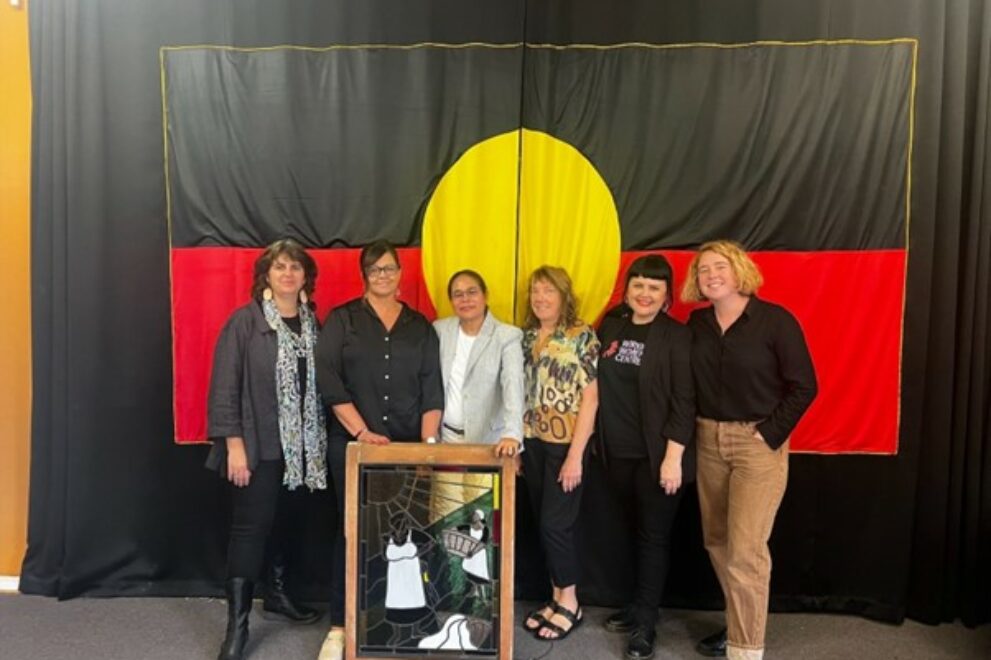
In a show of support and solidarity, the Working Women’s Centre attended the Bread and Roses / Bret Mo Roses album launch, spotlighting the courageous battle of a group of 12 migrant women, members of the United Workers Union, who are fighting back after surviving sexual violence in the glasshouses of Perfection Fresh company.
These women, known as the Perfection 12, have bravely taken their fight to the Federal Court of Australia, seeking accountability and systemic change at Perfection Fresh, a major supplier to Coles and Woolworths, for failing to provide a safe workplace for its employees, particularly women who endure sexual harassment and assault within its glasshouses.
The Bread and Roses album, featuring the voices and stories of the 12 migrant women union members, marks a significant moment in the ongoing struggle, particularly highlighting the sacrifices that seasonal workers make for their families and their isolation from their communities for years, as well as their pursuit for justice and safety in the workplace. The title track, Bread and Roses (Bret Mo Roses) is an old union song that has been adapted by the women to reflect their own fight for respect.
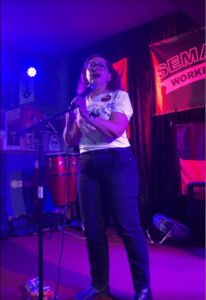
During her speech at the Semaphore Workers Club event, Caterina Cinanni, executive director of the United Workers Union, emphasised the urgency of their fight for change. “The Perfection 12 are brave women fighting for justice, respect, and safety not just for themselves, but for every single woman working in that glasshouse. Perfection Fresh is the wealthiest and largest tomato glasshouse corporation in Australia.”
Abbey Kendall, director of Working Women’s Centre, underscored the importance of safe workplaces for all workers “Seasonal work must be safe, regardless of their background, identity, or job type. That is the benchmark of Australian workplace laws,” she added.
As the Perfection 12 continue their legal battle, supporters can amplify their message by spreading awareness and advocating for accountability from companies like Perfection Fresh. The Bread and Roses album serves as a testament to their resilience and determination, inspiring solidarity, and action among all who seek justice in the workplace.
For more information on how to support the Perfection 12 and their campaign, visit Bread and Roses – Full Album – Rotten Perfection

Abbey Kendall, the Director of the Working Women’s Centre SA, and Caitlin Feehan, lawyer with the Centre, travelled to Canberra on Wednesday (31) to represent the organisation at the Senate Inquiry held at Parliament House. Their purpose was to provide evidence concerning the Australian Human Rights Commission Amendment (Costs Protection) Bill 2023.
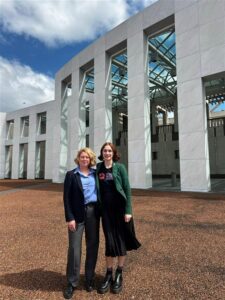
The passage of this bill would eliminate the financial risk for women who have experienced sexual harassment and/or discrimination of having to pay the legal costs of their employer when pursuing their claims in the Federal Court. The current financial risk with taking these types of matters to Court is a known deterrent for women when considering whether to pursue their matters past unsuccessful conciliation. By this Bill being passed, it would provide certainty for women to pursue their matters without risking their long-term economic security.
Great work to all the organisations that attended the Senate Inquiry yesterday in support of this important proposed law reform!
![]()
